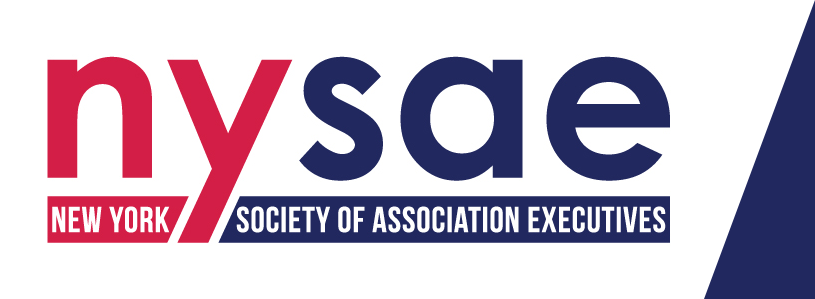Governing in Times of Crisis: Non-Profit Boards
Print this Article | Send to Colleague
A number of people have inquired about how Boards should govern in times of crisis. The short answer is, they should govern well. Good governance is good governance – crisis or no crisis.
A history of practicing good governance becomes even more important and advantageous to an organization during turbulent times. High performing Boards, in partnership with effective executive leadership, are well positioned to add considerable value to their respective organizations in response to and during recovery from the COVID-19 crisis.
During a crisis, in an environment where so many critical uncertainties exist, tension can run high and stress can be overwhelming. Different people will react differently to these stresses. This is not surprising considering the definition of crisis used at Harvard Business School: a crisis is “a situation with significant newness or novelty where one must solve problems and make decisions in real time with rapid innovation under stress embedded in fear.”
The novel nature of a crisis means there isn’t and couldn’t have been a playbook to follow; instead, one must rely on applying problem solving processes (ideally pre-determined processes that are embedded in an organization’s institutionalized practices) in response to and recovery from a crisis. Crisis management, therefore, is an iterative problem solving process where one “makes decisions in real time with rapid innovation under stress embedded in fear.”
Although all aspects of governance are important all of the time, during a turbulent time or crisis Boards may want to place a particular emphasis on the good governance principles and practices set forth below. By doing so, Boards can add considerable value as they work to fulfill their leadership role and best position their respective organization for success in response to and recovery from the COVID-19 crisis. A crisis is an opportunity to further strengthen Board performance along these lines or introduce these practices to a Board with the goal of increasing the value that the Board delivers to an organization and its members.
Optimizing Board Value
Re-affirm/clarify Board’s role: During a crisis there can be a tendency for Boards or individual Board members to want to jump in and fix things or make decisions that are in management’s realm. It is important, however, for Boards to resist this urge, which could inadvertently make the CEO’s difficult job even more difficult. Equally important, CEOs should recognize the tremendous value a Board’s diverse perspective can bring to the table and rely on the Board for generative thinking. The point is, Board and management roles and responsibilities need to be clearly defined. Failure to have clearly defined and agreed to roles can result in a deterioration of the board-CEO dynamic, diminish the organization’s response capability, and stifle the timely delivery of value.
Board-CEO Partnership: CEOs and Board members should keep top of mind the importance of strengthening/nurturing the Board-CEO partnership. These are difficult times and the CEO will need the Board’s support; likewise, the Board will need CEO support to ensure it is effectively carrying out its responsibilities. Ultimately, it is the organization and members that benefit from a strong and healthy Board-CEO partnership, which includes an appropriate exchange of information between the entities. Keeping in mind that the effectiveness of a Board and CEO are interdependent, this, among other things, will require Board members and CEOs to engage in respectful, honest, candid communication. Likewise, it will be beneficial to remember that neither party (Board or CEO) is superior or inferior; the Board and CEO simply operate with different roles.
Generative Governance: Chait, Ryan and Taylor in Governance as Leadership: Reframing the Work of Nonprofit Boards, identify generative governance as one of three governance modes. In a nutshell, a Board engaged in generative governance works with the CEO to frame issues and problems as it makes sense of ambiguous situations and determines what the organization should be paying attention to. This mode of governing, if employed in turbulent times, will actively engage a Board in critical inquiry in a manner that just might bring more value to the organization than any other governance practice. Generative governance creates a scenario where a diverse group of people (the Board) is engaged in analytical and creative thinking as they frame the issues and identify the most relevant problems and challenges created as a result of the crisis.
Strategic Thinking/Long-term Perspective: A key finding of Gazley and Bowers in their What Makes High Performing Boards study is that “the greater the strategic orientation, the better the Board performance.” Setting the strategic direction of the organization is also a key Board responsibility. During turbulent times, Boards have a responsibility to bring long-term insight and diverse perspective into strategic conversations about the organization’s future. Board members are uniquely positioned to provide information on crisis impact on their businesses or professions, which is one of the first steps in developing a strategy for your organization. Board’s should also be expected to engage in scenario planning as the organization takes a strategic approach to solving problems and grappling with the critical uncertainties created as a result of the crisis. A crisis presents a perfect opportunity to up a Board’s strategic thinking capability and to up its game on setting the organization’s strategic direction.
Strategic Plan Assessment: In partnership with the CEO, Boards should assess the COVID-19 crisis impact on the organization’s strategic plan for the purpose of determining if any changes are in order. If the plan is truly a strategic plan, and not full of tactics or an operational plan, it is quite possible that the strategic initiatives might, for the most part, stay the same. On the other hand, new opportunities might have been surfaced by the crisis that would warrant modifying or changing a strategic initiative or two. However, only a comprehensive review will reveal how your plan might be impacted. In reviewing the strategic plan, Boards should be paying particular attention to the assumptions that the plan was based on and to new barriers to achieving the organization’s ideal future state that may have surfaced. Boards can also add value by pressure testing the CEO’s assumptions. Even if all or the majority of the plan’s strategic initiatives remain the same, Boards should expect their CEO’s to review and possibly recommend modifications to some of the outcome metrics/quantitative objectives. Likewise, Boards should expect CEOs to modify the tactics that are used to implement the plan; after all, COVID-19 has changed the playing field.
Performance Oversight: Boards should recognize that crises by their nature are novel and most often new information emerges as the crisis evolves. As such, in addition to their typical oversight duties, Boards will want to ensure that sound, comprehensive, strategic problem solving practices are in place and applied in an iterative manner when necessary. CEOs, even if their decision in hindsight may not have been the best, will want to be able to demonstrate that sound problem solving/decision making techniques were employed. Boards should also ensure that the organization is standing by its core values, which includes living up to the value even if there may be short-term disadvantages in doing so. And Boards will want to ensure that sound internal and external communications strategies are in place. Once the crisis is behind us, Boards have a responsibility to evaluate the organization’s response and the Board’s performance during the crisis.
Fiduciary/Legal Obligations: As always and as legally required, Boards must keep their collective eye on and comply with their duties of loyalty, care and obedience. This includes doing their best to comply with the organization’s bylaws and other governing documents. During this most recent crisis, a number of people have raised the issue of ignoring bylaw provisions, such as not enforcing term limits or not holding officer or Board elections. Should such an issue be raised, Boards should think long and hard about supporting such a concept that violates bylaws. The overwhelming objective or goal of a Board should be to find a way to comply with the organization’s bylaws and governing documents. Modernized bylaws are crafted with a modification clause that assigns responsibility and authority for revising bylaws to the Board itself and not the membership. If your organization’s bylaws require revisions to be made by the membership and you found that the bylaws truly hampered your organization’s ability to act nimbly, you might consider modernizing your Bylaws.

By Robert Nelson
CEO, Nelson Strategic Consulting
Robert Nelson, CAE, is the CEO of Nelson Strategic Consulting, a firm that works with trade associations, professional societies and philanthropic organizations, to design and strengthen governance systems, create high-performance strategic thinking Boards and develop winning organizational strategy.

